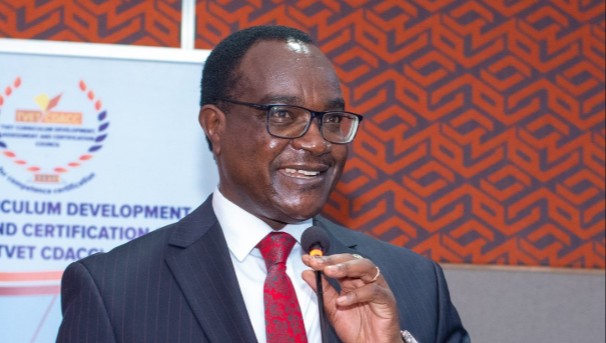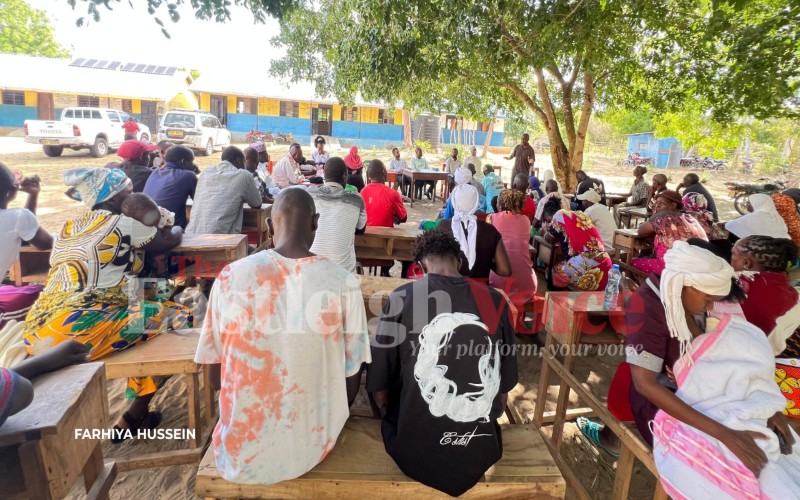New cluster model replaces national and county school categories in senior school reform

Under the revised structure, all former national schools now fall under Cluster 1, extra-county schools under Cluster 2, county schools under Cluster 3, and sub-county schools under Cluster 4.
The government has scrapped the national, extra-county, county, and sub-county classification of secondary schools as it prepares to roll out senior schools under the Competency-Based Education (CBE) system starting in January 2026.
Senior schools will now be grouped into four clusters based on their capacity to offer different career pathways and subject combinations.
More To Read
- Over 30,000 teachers set for senior school curriculum training ahead of 2026 transition
- Grade 10 textbook supply at risk as Sh11 billion debt stalls printing
- Education Ministry closes 10 ‘ghost’ schools as audit finds 6,000 under-enrolled institutions
- No more certificates for Grades 6 and 9 learners under new education policy
- MPs demand fresh audit of Sh11.6 billion KICD textbook pending bill over distribution discrepancies
- Publishers warn Sh11.4 billion debt may delay Grade 10 textbooks ahead of senior school rollout
Under the revised structure, all former national schools now fall under Cluster 1, extra-county schools under Cluster 2, county schools under Cluster 3, and sub-county schools under Cluster 4.
The Ministry of Education announced that the new four-cluster model replaces the traditional classification system and aligns with recommendations by the Presidential Working Party on Education Reforms as contained in its 2023 report.
Each cluster outlines the specific career pathways and subject combinations available at each school, with the aim of guiding learners and parents in making informed choices.
Under the new system, the three approved career pathways include Science, Technology, Engineering and Mathematics (STEM), Social Sciences, and Arts and Sports Science.
Cluster 1 schools will offer all three pathways due to their superior infrastructure. Schools in Clusters 2, 3, and 4 will offer at least two pathways, with STEM being mandatory. However, institutions with sufficient facilities and staff may be allowed to provide all three.
Further classification
Schools have also been classified by accommodation type, day or boarding, and by gender. Learners and their families can view this detailed information, including school locations, through the ministry’s portal.
For example, Kangaru School in Embu County will offer all three career pathways. Under STEM, the school has 14 subject combinations available, nine for Social Sciences, and 10 for Arts and Sports Science. Each combination is made up of three subjects.
According to the Basic Education Curriculum Framework, 60 per cent of learners will be placed in the STEM pathway, 25 per cent in Social Sciences, and 15 per cent in Arts and Sports Science.
Education Cabinet Secretary Julius Ogamba assured parents and stakeholders that the selection and placement process for the 1.2 million Grade Nine learners currently choosing their preferred senior schools and career pathways is transparent and reliable.
National assessment
“The Grade Nine candidates are using the system to make their senior school choices based on career pathways, gender, school type, and location, among other factors. Preparation for the Grade Nine national assessment is progressing well, and results will be released in time to ensure smooth placement,” Ogamba said during the Kenya Secondary Schools Heads Association conference in Mombasa.
In a policy shift, the CS also announced the reversal of a previous directive requiring national boarding schools to introduce day wings. The directive had drawn resistance from school heads, who raised concerns over potential discipline challenges.
Ogamba said that once the 8-4-4 system is completely phased out, the structure of senior schools will help resolve congestion issues, as they will only accommodate three classes: Grades 10, 11 and 12.
“Senior schools will now have extra classrooms because we will only be having three grades at this level. These classrooms are expected to provide extra space for every senior school, enabling us to avoid overcrowding,” he said.
The CS also assured stakeholders that the Kenya Institute of Curriculum Development (KICD) will distribute all required Grade 10 learning materials before the transition, and that the Teachers Service Commission (TSC) has received adequate funding to retool all teachers handling senior school classes.
He urged headteachers to adopt a firm stance on academic integrity and uphold the quality of education.
“Education is not just about access; it’s about quality. I urge every headteacher to institutionalise school-based assessments, data-driven improvement plans and mentorship programmes for both learners and teachers,” he said.
Learners well-being
On the growing concern over student indiscipline, unrest, and drug abuse, Ogamba said the Ministry is working on a national strategy to enhance school safety and learner well-being.
He further reaffirmed the government’s commitment to sustaining the free day secondary education (FDSE) programme, which has experienced delays in funding disbursement.
“For the second term, the government has disbursed Sh22 billion in capitation for basic education, including Sh11.6 billion for FDSE. We are working with the National Treasury to ensure the timely release of all allocated funds,” he said.
The CS also reminded school heads and administrators to uphold principles of transparency and accountability in financial management, in line with the Public Finance Management Act, 2012.
“Every shilling must be accounted for. You are entrusted not only with the care of children but also with public resources. Ensure compliance with all circulars, including the prohibition of unauthorised levies unless approved by the ministry,” Ogamba said.
The updated clusters are available on the Ministry’s website: https://selection.education.go.ke.
Top Stories Today










































